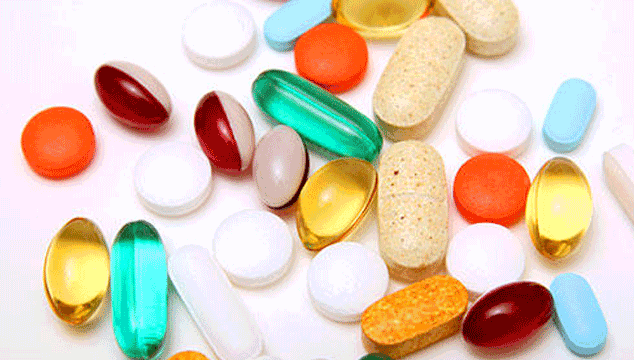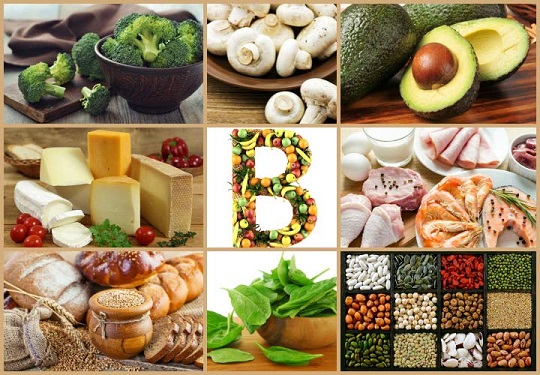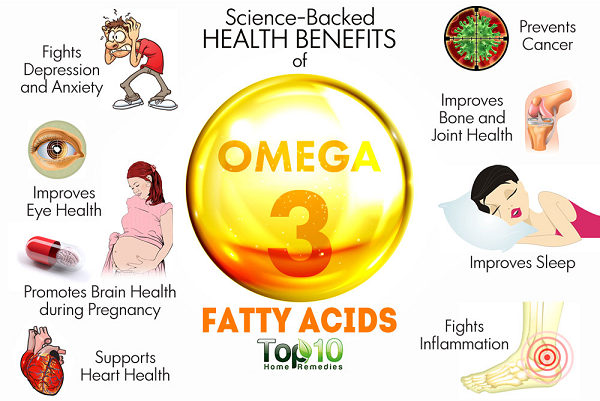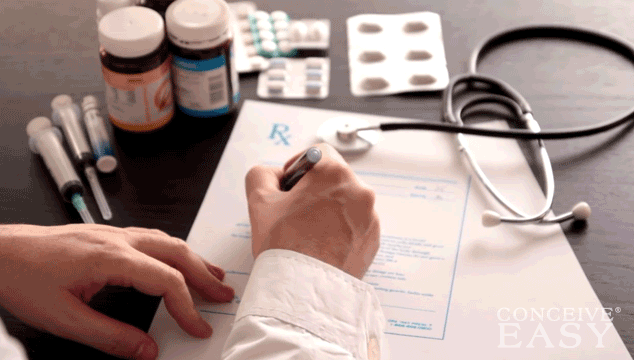![]() The information provided by our expert should not constitute a diagnosis of your condition. Always consult a medical practitioner or healthcare provider for a formal diagnosis. By making use of this content, you agree that ConceiveEasy and the expert assume no liability.
The information provided by our expert should not constitute a diagnosis of your condition. Always consult a medical practitioner or healthcare provider for a formal diagnosis. By making use of this content, you agree that ConceiveEasy and the expert assume no liability.
You are planning on getting pregnant and you need to learn what you can about how to increase the chances of you not only having a healthy pregnancy, but to also increase the chances of you having a healthy growing baby. Claim Your 20 Free Pregnancy Tests – Click Here
When you think about the idea of being pregnant, you are probably thinking about the physician’s appointments that you will be having to make, as well as stuffing your calendar with your baby nursery shopping. You may also be wondering if breastfeeding is the way to go and childbirth classes as well.
These are all important to focus on during your pregnancy. However, there is one thing you may not have thought of!
You need to find out which prenatal vitamins to start taking, even before you are pregnant.
It may happen that an unexpected pregnancy happens, therefore you would not have thought about taking prenatal vitamins. However, in that case, start taking these vitamins as soon as possible. Think of them as your pregnancy pills! It is imperative that you do because they are there to not only help you maintain a healthy pregnancy, but also to increase the chance of you having a healthy baby.

Think about this, your baby’s nourishment is always dependent on the you, the mom. Therefore, it is crucial that a mother-to-be is able to meet the nutritional necessities during pregnancy. That is to make sure that the baby in the womb develops properly and is healthy.
The problem is that due to the fact that women being more career-oriented and active in modern times, focusing on what needs to be done to ensure a healthy pregnancy can be overlooked. Therefore, women may not always consider the importance of eating healthy with balanced meals while they are pregnant in this day and age.

However, even so, eating balanced meals and eating as healthy as possible isn’t enough to help maintain a healthy pregnancy and keep a developing fetus healthy. Nutrients are frequently lost in foods even if they are organic.
The solution to this issue is to take prenatal vitamins while pregnant.
But at the same time, supplements are not also meant to be taken to replace nutritious meals. Pregnant women have to eat nutritious meals as well as taking prenatal vitamins.
If women who are trying to conceive are unsure of the type of foods to eat, it is best that they are referred to a dietician or nutritionist by the doctor. Either way it is extremely important to make an attempt to have healthy meals that consists of dairy, meat, complex carbohydrates, and fruits and vegetables.

When you are looking into taking vitamins during your pregnancy, there will be suggestions made to you about which ones to take. However, your doctor is the one to consult whenever you are asking about which prenatal vitamins are the best ones to take during your pregnancy.
Your current health will be taken into consideration prior to recommending the vitamins that match your requirements. In addition, you need to make it clear to your doctor that you must know how much of a dosage to take, and if there are side effects.
Listed below are the prenatal vitamins that doctors recommend for all pregnant women:

Vitamin B is one of the more essential vitamins during pregnancy, because it is essential for your immune system and fertility. There are different types of B-vitamins to take as they will be listed as well.
Thiamin is an important B vitamin for pregnant women to take, as it is also called Vitamin B1.
It helps you and the unborn baby to convert carbohydrates into energy. It also helps your nervous system, heart function, and muscles to function normally. Thiamin is essential for your baby’s brain development as well.
Riboflavin is also a very important B vitamin that pregnant women are recommended to take, as it is also referred to as B2.
This is an important vitamin that helps your body produce energy, and it helps promote your baby’s growth. It helps the baby develop good vision as well as healthy skin. Riboflavin is also essential for your baby’s nerve, bone, and muscle development.

Vitamin B6 is also to help with the baby’s overall development, and not to mention it helps you digest protein.
Vitamin B6 also helps reduce nausea and morning sickness in pregnant women. In fact, a safe way to handle nausea for pregnant women is to take extra Vitamin B6.
Vitamin B12 is another very important vitamin which helps DNA synthesis and neurological facet of the baby’s growth.
It helps form the growth of red blood cells in the body.

Folic acid is one of the minerals that are contained in prenatal vitamins. It’s an incredibly essential nutrient during pregnancy. In fact, it is the most important part of the prenatal vitamin. Folic acid is not only important for the growth of the unborn child; it has also been shown to drastically reduce the risk of neural tube defects such as spina bifida.
Spina bifida occurs in the earliest stages of pregnancy. That is when the spinal cord is not closed which exposes the nerves. This can result in paralysis and even mental retardation. Therefore, every proper prenatal vitamin will contain folic acid.
And this is why prenatal vitamins should be started before you are pregnant!
Folic acid is also known to prevent another serious defect called hydrocephalus. Hydrocephalus is an incurable condition in which cerebrospinal fluid abnormally gathers in the brain’s cavities. Therefore, it causes neurological dysfunction, so therefore you will want to make sure you get that folic acid into you.
You will want to also consume folic acid through natural sources such as green leafy vegetables, orange juice, nuts, and citrus fruits. Doctors recommend at least 400 mcg of folic acid in a day.

Calcium is one of the most important elements in an expectant mom’s diet. It is also essential for the developing bone growth of the unborn child. However, prenatal vitamins do not always contain enough calcium, and there are some that don’t at all.
The ones that do have it only contain around 250 mg, whereby the recommended intake for pregnancy is 1200 to 1500 milligrams. That said, you will want to make sure you are either taking an additional calcium supplement as well, especially if you don’t like a lot of dairy products that are known to be rich in calcium.
However, if you don’t like milk but don’t mind other dairy products, then there is good news. You do not have to drink milk to get your recommended calcium intake. Calcium is also found in green leafy vegetables, eggs, soya beans, nuts and fish.
As the fetus develops, it starts depleting the calcium in the bones of the mother’s body because it requires it for its own development. Because of this, you could lose your own bone density. Therefore, it could cause numerous problems later on such as developing osteoporosis. Calcium supplements help the developing fetus as well as helps the mother keep her own bone strength.

Iron is another important mineral contained in prenatal vitamins. Iron helps the mother and the baby’s blood to carry oxygen. Iron deficiencies can lead to severe birth defects for the baby, in addition to other complications for the mother.
When you are pregnant, the body produces more blood. Therefore, it uses up more iron from the body. One extremely common problem that pregnant women deal with is anemia. Due to this iron deficiency, anemia causes exhaustion, fatigue, as well as other complications. Iron supplements are typically taken after the first trimester due to the increased blood supply.

You and your developing baby absolutely require vitamin C daily because of its crucial foundation for collagen development. Collagen is a structural protein that’s a component of bones, cartilage, skin and tendons.
Vitamin C helps also helps your body fight infections, and it acts as an antioxidant, thus protecting cells from damage. You can find vitamin C in citrus fruits, as well as in berries and tomatoes. However, taking a supplement is necessary for pregnant women instead of relying on food only.

Zinc is a mineral that is in many foods such as nuts, green leafy vegetables, certain grains and seeds. It is crucial for the development of the baby’s cells and DNA during pregnancy. Zinc is needed for cell division, as well as tissue growth. Zinc must also be part of a good prenatal vitamin since it is important to help sustain healthy fetal development.

Vitamin D is crucial for bone development, as it helps the absorption of calcium as well. Lack of or insufficient Vitamin D consumption can lead to abnormal bone growth, rickets for bone fractures in newborns.
In fact, it has been said that there is a link between vitamin D deficiency and higher pregnancy complications such as preeclampsia, gestational diabetes, preterm birth and low birth weight. However, more research has to be conducted to confirm these links.
The recommended daily intake of vitamin D is 400 to 600 IU, but many prenatal vitamins don’t have enough so therefore, it is important to take a supplement as well.

Omega 3 is an unsaturated fatty acid, which has great health benefits. Omega 3 is anti inflammatory by nature and is crucial for brain development. In fact, Omega 3 can reduce the odds of conditions such as ADHD developing. Though ADHD can be genetic and it won’t help too much in that case, it can certainly help the severity of the condition.

Omega 3 is not always included in prenatal vitamins, as your doctor may recommend that you take a separate supplement. The recommended intake during pregnancy is 600mg a day.
If you like fish, they contain Omega 3, as well as some nuts and seeds. The only thing to be careful with when eating fish is that they don’t have high levels of mercury. Salmon however is usually quite safe to eat during pregnancy, and it is rich in Omega 3. Tuna is known to have high levels of mercury, so therefore it is best to eat tuna in limited amounts, or even avoid it all together.
The only negative side effect you will get from taking Omega 3 supplements is being left with a fishy taste, and having a higher tendency to belch.
This may be even more difficult if you are dealing with a lot of pregnancy sickness.

There are other vitamins as well that are important to be in a good quality vitamin. However, some vitamins are not safe to take in high levels during pregnancy such as Vitamin A and E which can cause birth defects. Again, if you are unsure, always consult with your doctor to discuss what the best prenatal vitamin is for you, as well as other supplements that you are recommended to take during pregnancy.
If you are also facing a lot of pregnancy sickness, and vitamin B6 is not helpful, and you are unable to hold down your prenatal vitamins or food, then you must see your doctor as well. Some pregnant women who are suffering from severe morning sickness state that prenatal vitamins can make them more nauseous.
If you are in this situation, then you need to possibly be admitted to the hospital to get an IV that will have the vitamins that are necessary for you and your developing baby. In most cases, pregnancy sickness will die down in the second trimester.
However, in the majority of cases, pregnant women are able to handle taking prenatal vitamins and be sure to take them religiously each day.
Not only will you be strong throughout your pregnancy, but your unborn baby will be healthy. However, odds are your baby will be great if you take excellent care of yourself while pregnant.
Best of luck on your new pregnancy journey and even with the discomfort that comes with being pregnant. Enjoy each moment and treasure your gift by taking the best care of that developing gem!










Comments